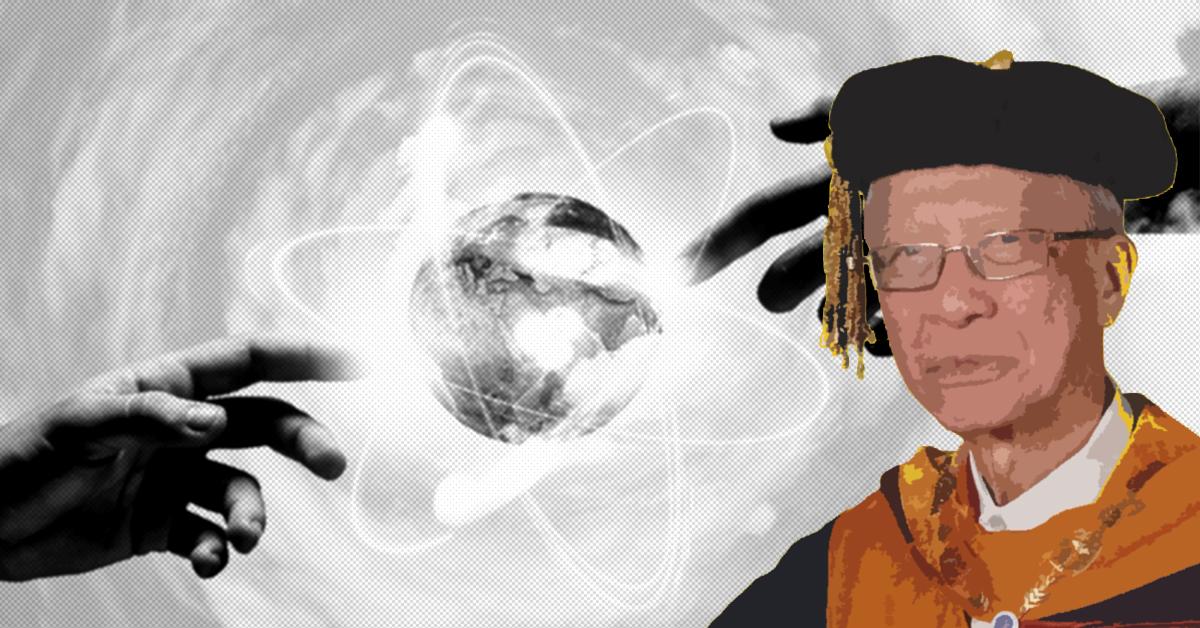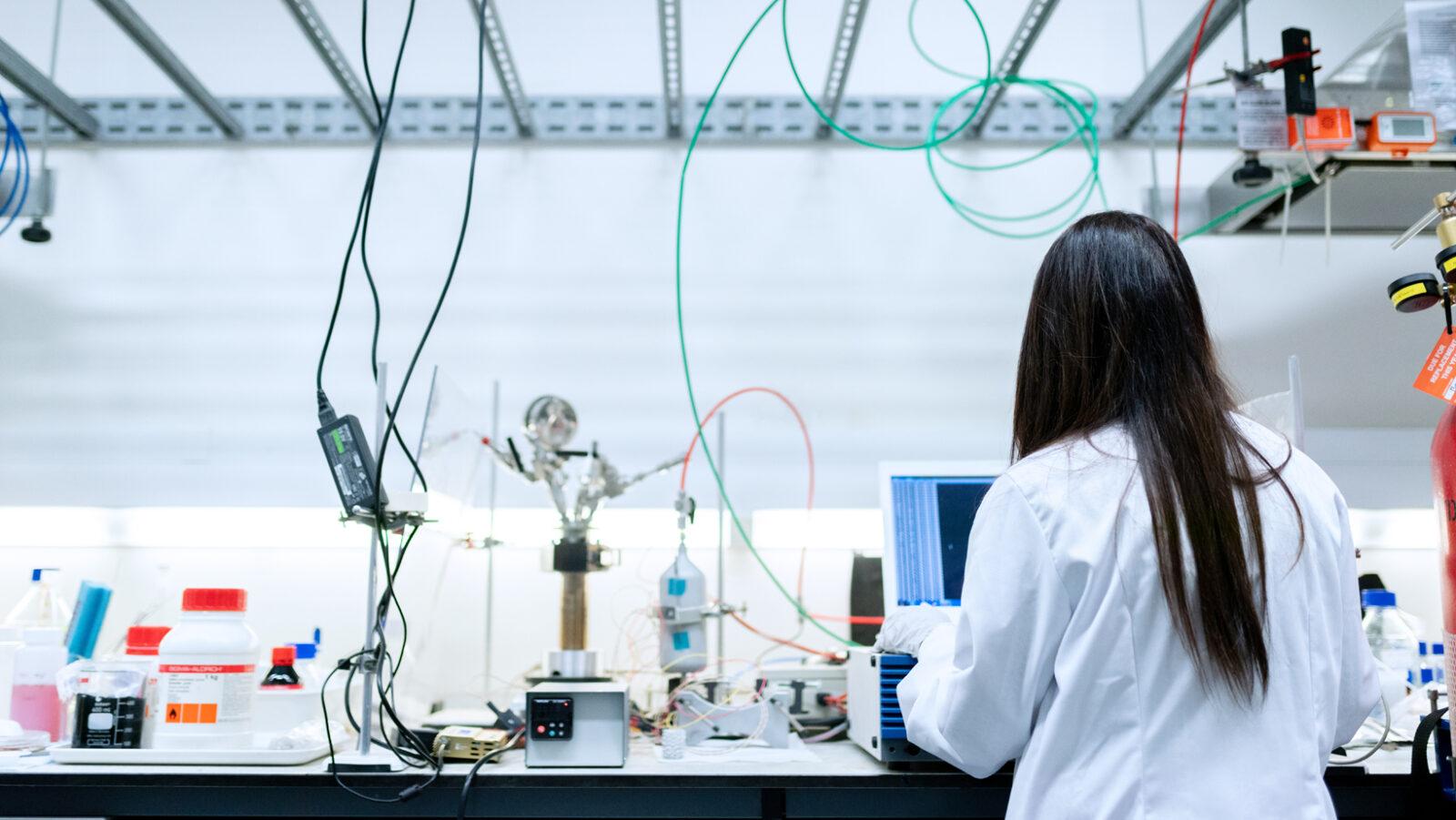•Born on March 15, 1940, Fr. Bienvenido Nebres, S.J. paved the way towards transforming science and math education in the Philippines.
•Fr. Nebres played a key role in the foundation of many major science and math education initiatives in the country.
•His efforts emphasized the importance of nation-building through high-quality and inclusive education.
It’s not uncommon to see science and religion pitted against one another, presented as if they were two clashing and irreconcilable perspectives.
Thus, it’s hard not to appreciate how a man of the cloth fervently championed math and science education in the Philippines.
A trailblazing educator
Fr. Bienvenido Nebres, S.J. was born on March 15, 1940. He earned his A.B. and M.A. degrees in Philosophy at Berchmans College, Cebu in 1962 and 1963, respectively. Afterwards, Fr. Nebres went to the United States and enrolled at Stanford University. It was there that he obtained both his M.S. (1967) and Ph.D. (1970) in Mathematics. He returned to the Philippines to pursue theological studies at the Ateneo de Manila University (ADMU) from 1970 to 1973.
Fr. Nebres’ passion for mathematics led him to form the Mathematical Society of the Philippines in 1972. It was the first professional organization in the country with the mission of promoting math research and education.
In 1977, he expanded this mission by becoming one of the founding officers of the Southeast Asian Mathematical Society (SEAMS). Fr. Nebres served as SEAMS’s first president.
But that was just the beginning of Fr. Nebres’ work in revolutionizing education in the Philippines.
A champion of educational reform
Putting his math expertise to good use, Fr. Nebres studied infinitary logics and model theory, and developed applications of the theory to both analysis and algebra. He also paved the way for Filipino mathematicians to conduct additional research in graph theory and combinatorics.
Fr. Nebres was among the first and loudest to advocate the development of mathematical finance and scientific computing in the Philippines. His tireless work in math education drew attention to the urgent need for engagement with political and social stakeholders for true and effective reform.
Fr. Nebres also took the lead in creating a long-term plan to develop and enhance science and math education in the country. He chaired the Project Advisory Group for the Engineering and Science Education Project (ESEP) of the Department of Science and Technology (DOST). ESEP became a pioneering large-scale education project in the Philippines, dedicated to enhancing resources for science and technology education.
He also co-founded the Kapisanan ng mga Siyentipikong Pilipino (KSP) alongside Dr. Roger D. Posadas of UP Diliman, Dr. Salvador Gonzales from De La Salle University, and Dr. William Padolina from UP Los Baños.
Additionally, Fr. Nebres served as the president of ADMU for 18 years, becoming the institution’s longest-serving president. There, he launched a number of initiatives that sought to improve the quality of basic education on a larger scale. One of these is the Ateneo Center for Educational Development (ACED), which currently works with over 400 public schools across the country.

To build a country…
In recognition of his contributions to both education and societal reform, Fr. Nebres received the title of National Scientist in 2011.
During his tenure as ADMU’s president, Fr. Nebres outlined two complex challenges in Philippine education. The first was the competitive gap between local education with the country’s Asian neighbors, and how to close it; the second was closing the poverty gap between the rich and poor in the Philippines. Quoting the Indian economist Amartya Sen, he said: “To build a country, build a schoolhouse.”
Math and science play crucial roles in basic education. Having a strong foundation in both areas not only prepares students for highly technical careers, but also helps them adopt a systematic and critical mindset. Fortunately, Fr. Nebres, through his deeper understanding of the human condition, helped bring science and math education in the Philippines to the forefront. –MF
Cover photo: Presidential Museum and Library PH (2010-2016); World Science Festival 2008
References
- Tecson-Mendoza, E. (2017) Biosketches: Filipino Trailblazers in Science and Technology. Taguig, Philippines. National Academy of Science and Technology Philippines.
- http://www.famousfilipino.com/content/view/75/123/
- http://www.science.ph/full_story.php?type=News&key=2664:academician-bienvenido-f-nebres-sj-is-national-scientist
- http://www.mathsociety.ph/index.php?option=com_content&view=article&id=2&Itemid=102
- https://unitedboard.org/about-us/leadership/board-of-trustees/father-bienvenido-f-nebres-s-j/
- http://ateneo.edu/news/building-internationally-competitive-institutions-and-overcoming-poverty-can-these-two-paths
- http://w3.ateneo.edu/index.php?p=2541
- https://www.philstar.com/headlines/2011/10/26/741011/nebres-named-national-scientist
- http://www.theguidon.com/1112/main/2011/05/fr-nebres-on-his-18-years-as-university-president/
Author: Jess Vilvestre
Jess is on her way to getting her license in engineering. On the side of studying, she spends her time writing, cooking, and watching movies and plays. Jess has also been working with an education project that capacitates STEM learners with portable science activity kits.







